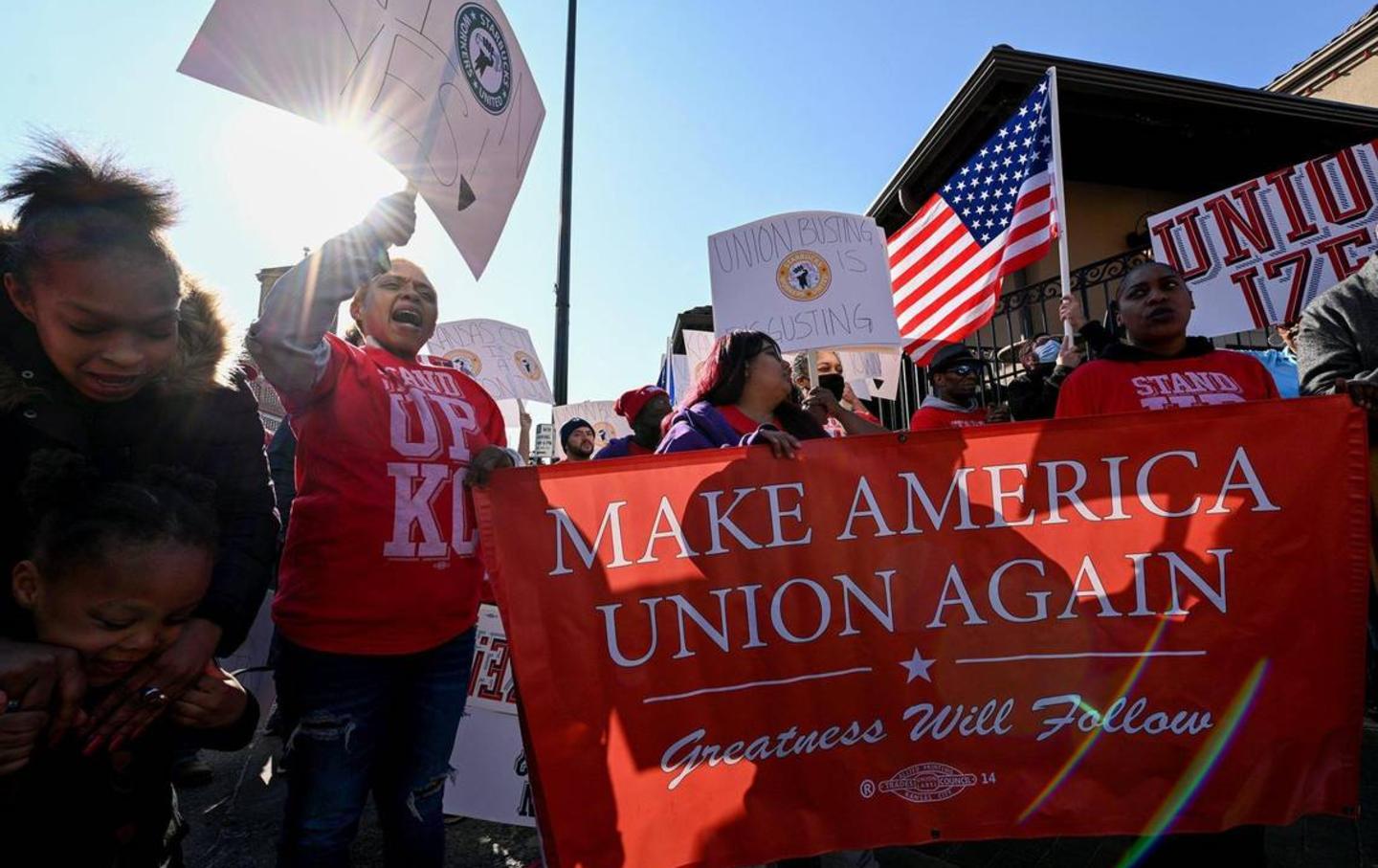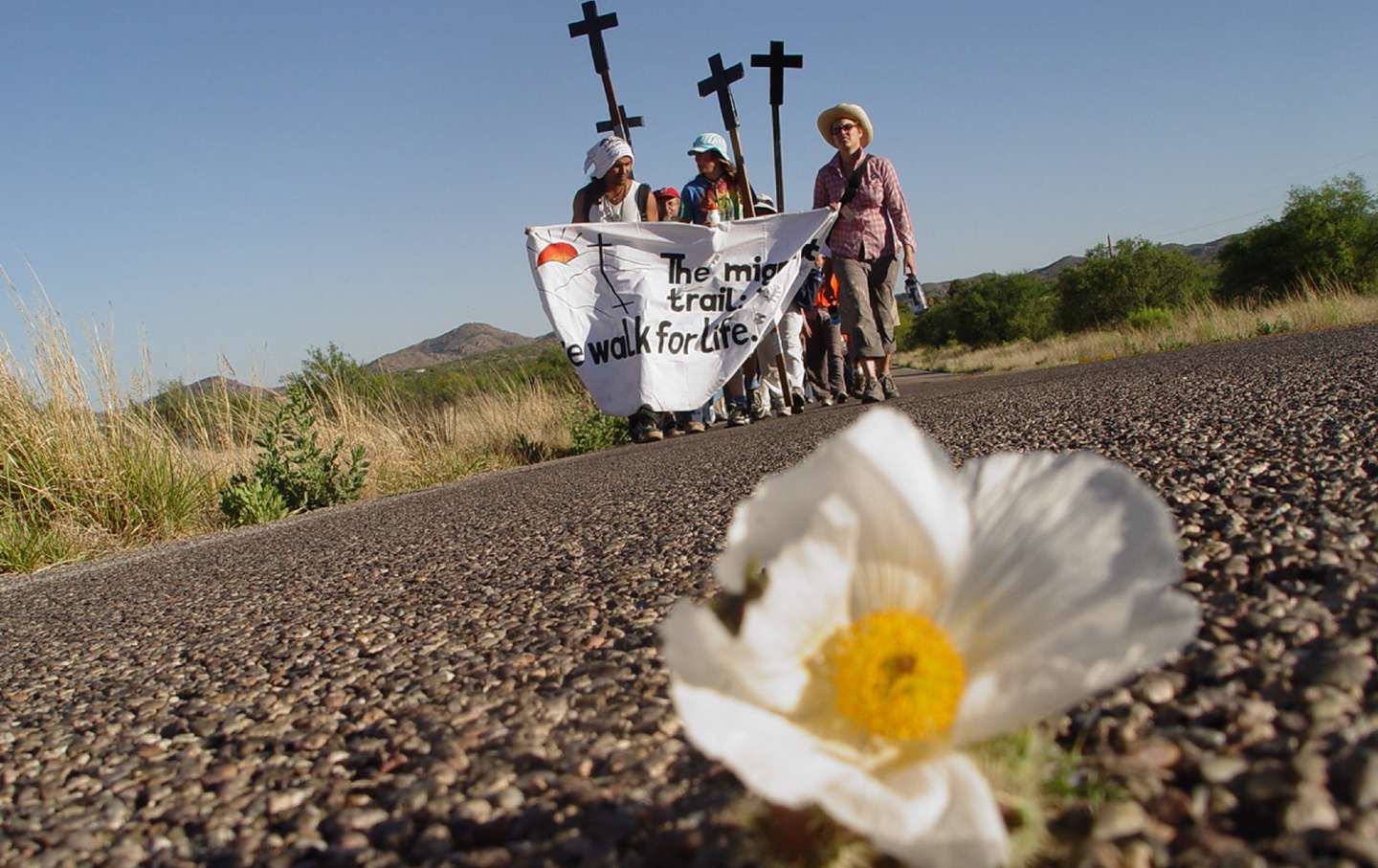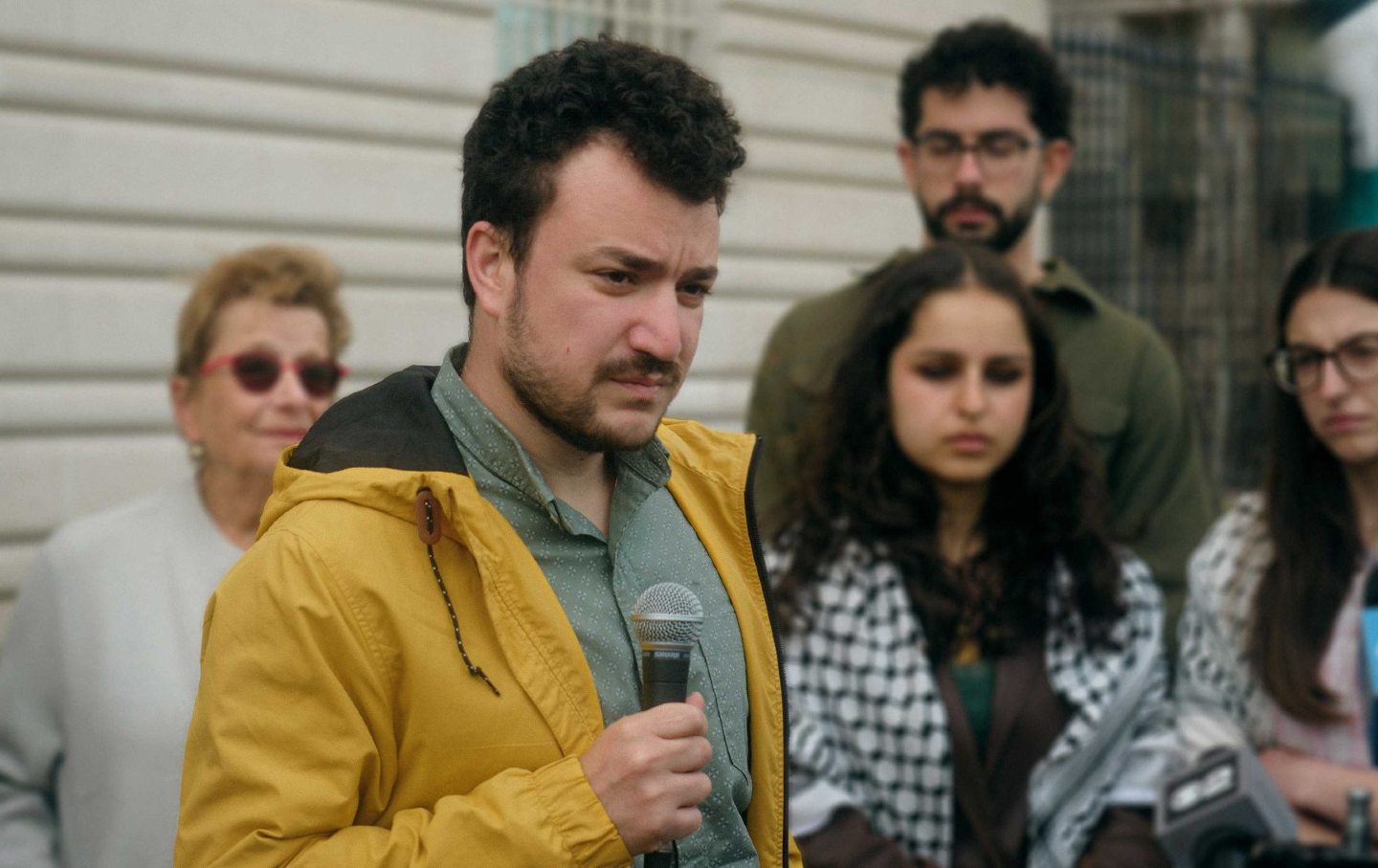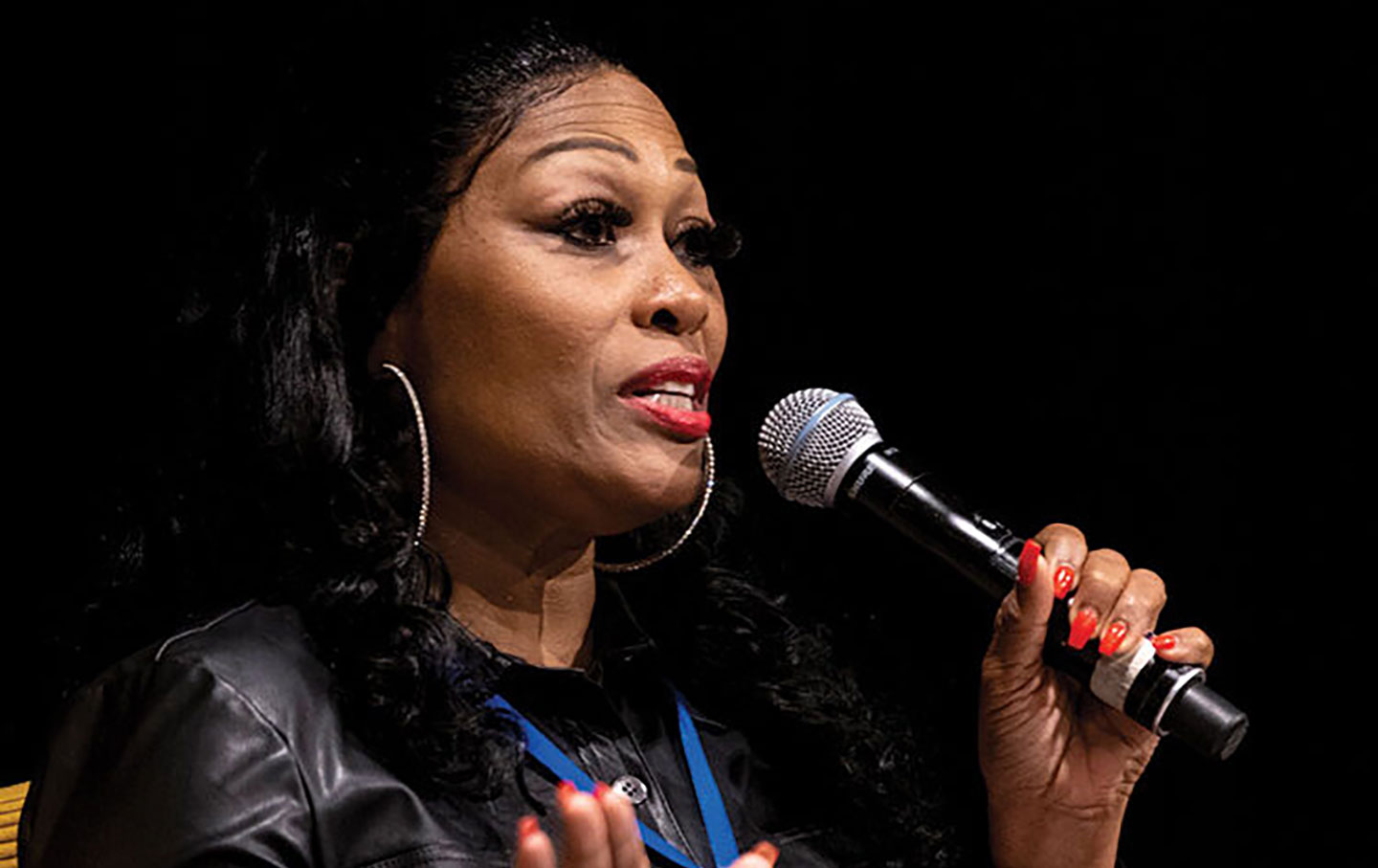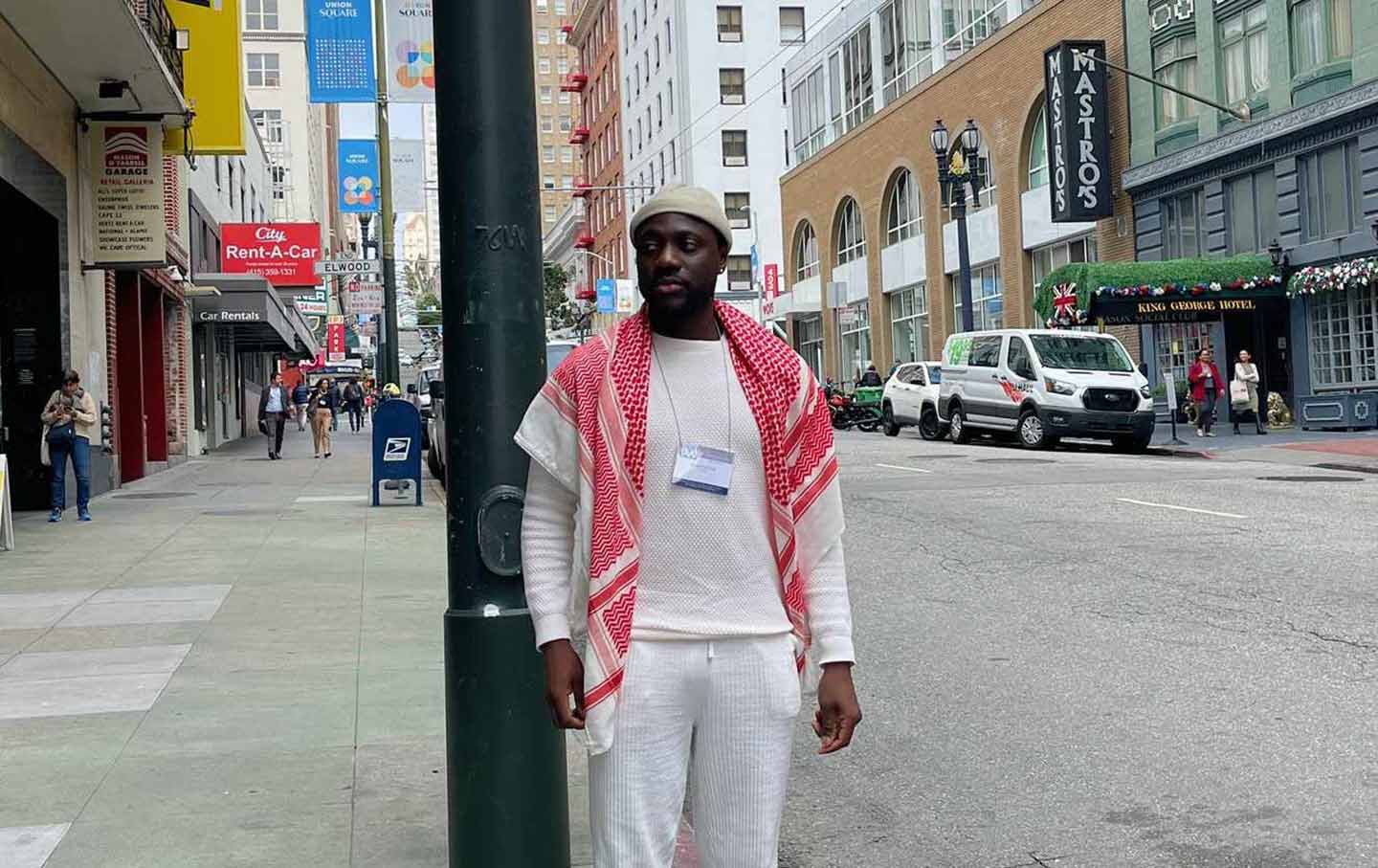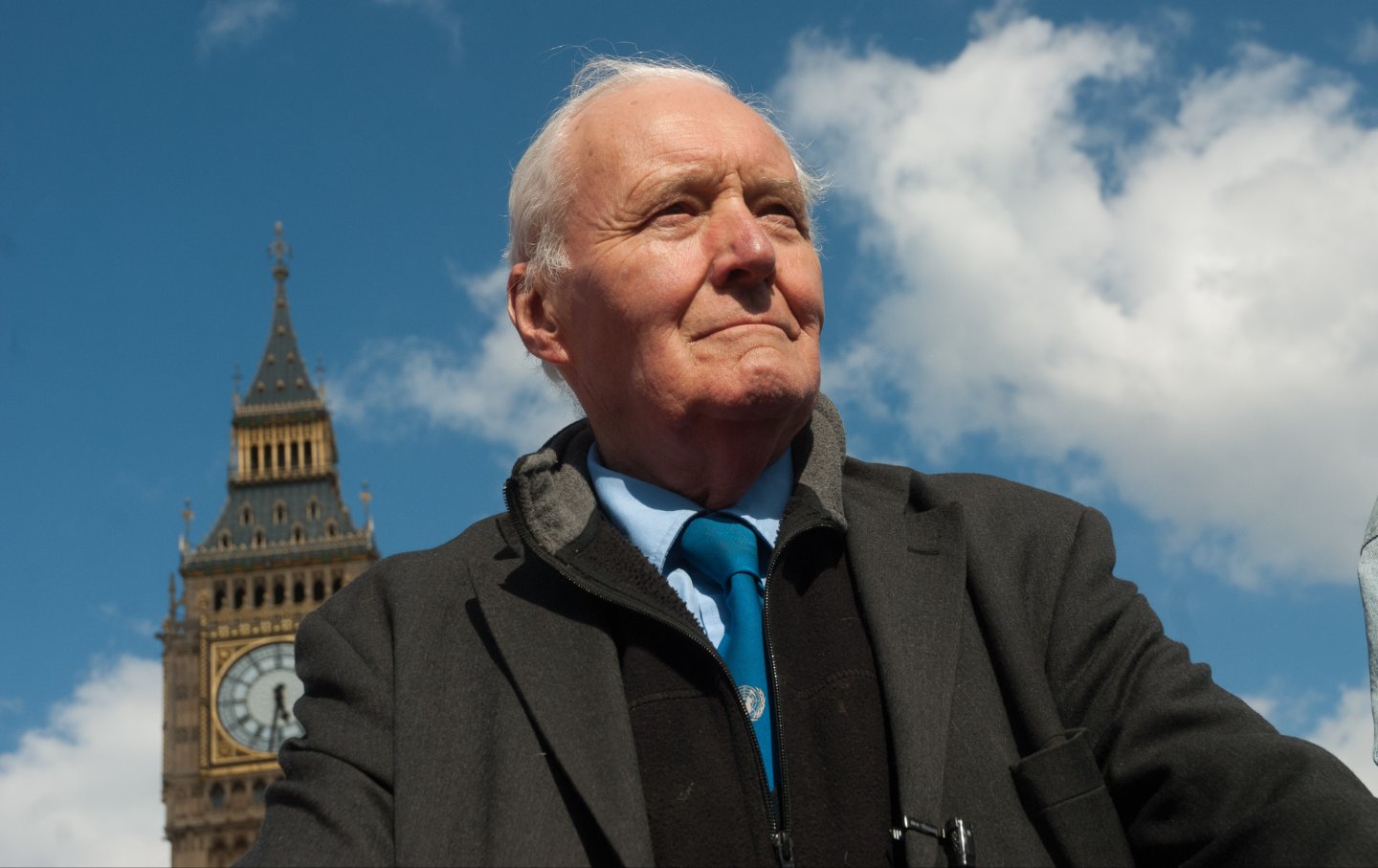This Is How Power Protects Itself
The decision to sic the police on peaceful protesters is evidence that people in charge are panicking. They’re terrified of the strength of the movement for Palestine.
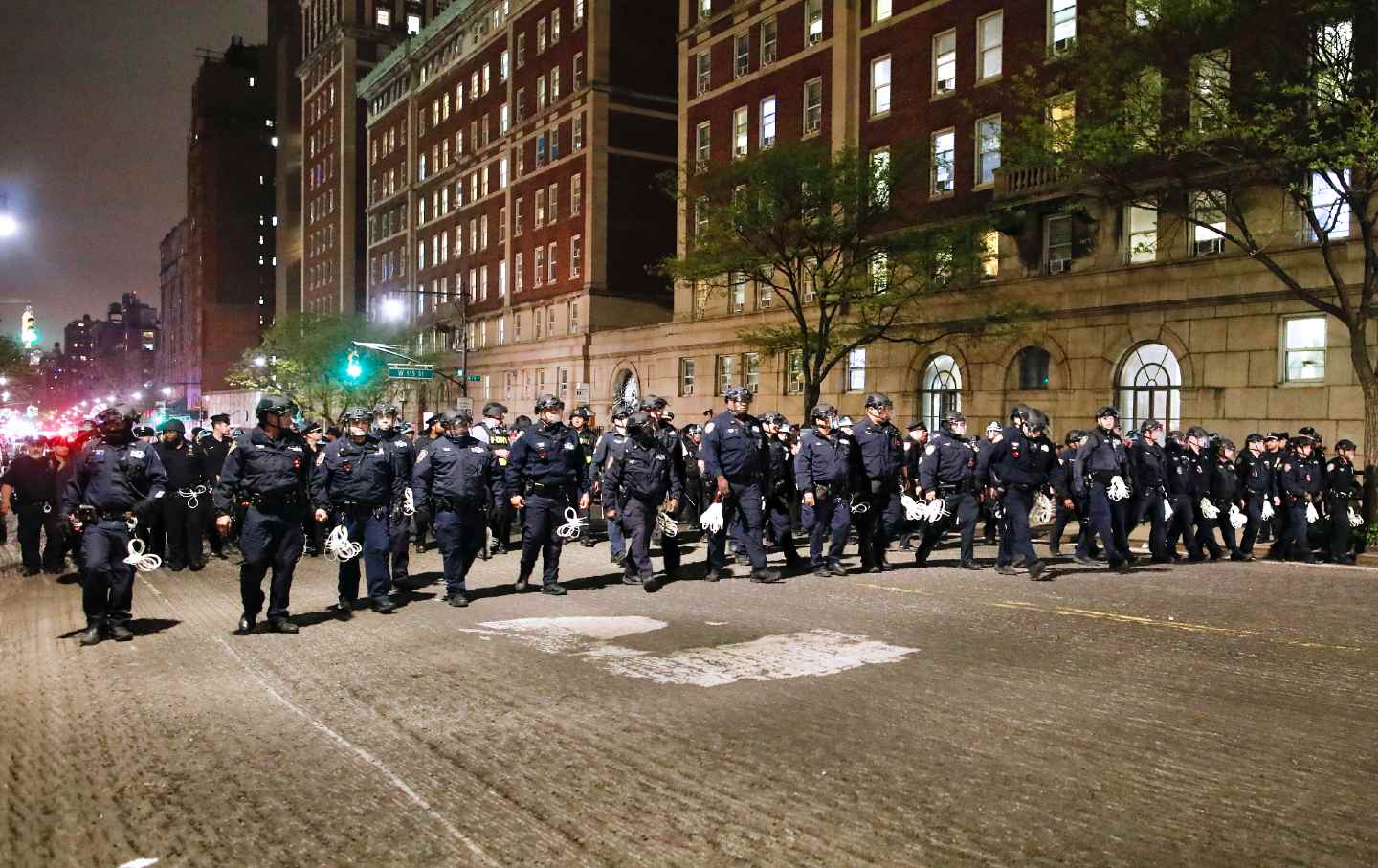
NYPD officers in riot gear march onto Columbia University campus, where pro-Palestinian students are barricaded inside a building and have set up an encampment, in New York City on April 30, 2024.
(Kena Betancurt / AFP via Getty Images)Columbia University found itself at the center of a global movement after students launched a Gaza Solidarity Encampment late last month. On Tuesday night, Columbia president Minouche Shafik, having apparently decided that the protests could no longer be tolerated, called in the New York Police Department to “maintain order” and ensure that no more tents pop up on the West Lawn. The NYPD happily complied. Officers forced their way into Hamilton Hall, which had been occupied by protesters, and violently cleared the building. Dozens of people were arrested. Further uptown, police ran riot at the City College of New York, where another student encampment and occupation had sprung up. Hundreds of officers stormed the school, violently arrested protesters, and hauled dozens of people away. After the campus had been cleared, police raised the American flag.
New York City Council member Chi Ossé summed the scene up well, tweeting, “Tonight in the United States of America, we are witnessing a militarized police force, funded by NYC taxpayers, arresting American students in the name of a foreign country that’s carrying out a genocide.”
In Los Angeles, police stood by and watched as a group of Israel supporters beat pro-Palestinian demonstrators at UCLA, attacking them with mace and fireworks. Police also used pepper spray on students at the University of South Florida earlier on Tuesday.
While all of this was happening, Israel continued bombing Palestinians up and down the Gaza Strip.
This shock-and-awe campaign was about smashing a rapidly expanding student movement whose bravery has captivated people around the world. It was about eliminating the threat that the pro-Palestine movement poses to business as usual. It was about showing university donors, Republicans, Democrats, and the White House that these schools knew which side they were supposed to be on.
And it was about reminding these students—these kids who had the nerve to sit in tents—of who is in charge and who isn’t. The students at Columbia and City College and UCLA and the University of South Florida and all of the more than 70 Gaza solidarity protests that have emerged at campuses around the country committed the sin of believing that it is acceptable for them to try to influence what happens at their school or—heaven forbid—what happens in the world at large. The hope is that these protesters will learn who the world is really supposed to work for—that there is a sky-high price to be paid for questioning the natural order of things. You can feel the question thrumming through the violence and repression: How dare you?
But here’s the lesson in all this: The people in charge are scared. They are terrified of the power of the movement for Palestine—of its size, moral righteousness, fearlessness, diversity, and love. And they are terrified that one of the key pillars of the American system—support for Israel no matter what it does—is being shaken.
Administrators and politicians are panicking. People aren’t supposed to question the billions of dollars we send to Israel or the nature of Israel’s apartheid system. They’re supposed to think that Zionism is sacred and that no Jew could ever oppose it. They’re supposed to stand by and watch as Israel commits crimes against humanity. And instead, they are rising up. There are more encampments every day.
The past seven months have been horrendous. The atrocities Israel has committed are almost too much to wrap your mind around, and the US government’s complicity is almost too much to bear.
But if we have seen the worst of what the world has to offer, we have also seen the best. The movement for Palestinian liberation is stronger than ever. People are putting their futures, and their lives, on the line for Palestine in numbers we’ve never seen. There has been a collective awakening. Nobody knows what that awakening will lead to, but it feels clear that, on some fundamental level it can’t go back to the status quo.
I want to return to that question that you can feel being spat at the students between the lines of the statements from the likes of the White House, New York City Mayor Eric Adams, and Columbia’s president Minouche Shafik: How dare you?
The students all over the country know the answer, and so does everyone else fighting for Palestinian liberation. The answer is this: You dare because that is how the world changes. And make no mistake, the world is changing now. All the cops in the world can’t stop that.
Hold the powerful to account by supporting The Nation
The chaos and cruelty of the Trump administration reaches new lows each week.
Trump’s catastrophic “Liberation Day” has wreaked havoc on the world economy and set up yet another constitutional crisis at home. Plainclothes officers continue to abduct university students off the streets. So-called “enemy aliens” are flown abroad to a mega prison against the orders of the courts. And Signalgate promises to be the first of many incompetence scandals that expose the brutal violence at the core of the American empire.
At a time when elite universities, powerful law firms, and influential media outlets are capitulating to Trump’s intimidation, The Nation is more determined than ever before to hold the powerful to account.
In just the last month, we’ve published reporting on how Trump outsources his mass deportation agenda to other countries, exposed the administration’s appeal to obscure laws to carry out its repressive agenda, and amplified the voices of brave student activists targeted by universities.
We also continue to tell the stories of those who fight back against Trump and Musk, whether on the streets in growing protest movements, in town halls across the country, or in critical state elections—like Wisconsin’s recent state Supreme Court race—that provide a model for resisting Trumpism and prove that Musk can’t buy our democracy.
This is the journalism that matters in 2025. But we can’t do this without you. As a reader-supported publication, we rely on the support of generous donors. Please, help make our essential independent journalism possible with a donation today.
In solidarity,
The Editors
The Nation

